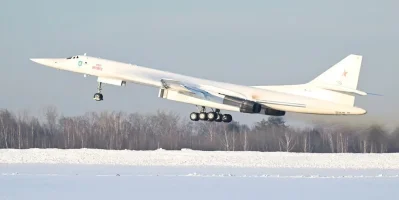
Russia has officially offered India access to its advanced floating nuclear power plant (FNPP) technology, a move that could significantly impact India's energy landscape.
This announcement, detailed in a Rosatom press release following a meeting between top nuclear officials from both countries, encompasses multiple facets of nuclear energy cooperation.
Floating Nuclear Power Plants: A Novel Solution
Floating nuclear power plants are self-contained, sea-based platforms housing small nuclear reactors. Strategically positioned off the coast, they can be connected to the onshore power grid, providing a flexible and relocatable energy source, particularly for coastal and remote areas.Russia has been a pioneer in this field, with the Akademik Lomonosov, the world's first operational FNPP, successfully powering the Chukotka region in the Arctic since 2019.
India's Energy Challenges and Opportunities
This offer aligns with India's growing energy demands and its commitment to diversifying energy sources. FNPPs present a potential solution to the challenges of providing reliable power to remote regions and coastal areas, where traditional infrastructure may be lacking or difficult to establish.Environmental Considerations and Safety
FNPPs are designed to withstand harsh marine environments and incorporate robust safety measures to prevent accidents. They also offer a low-carbon alternative to fossil fuel-based power generation, contributing to India's sustainability goals.However, concerns regarding nuclear safety, waste management, and potential environmental impacts will need to be addressed thoroughly before any deployment.
Beyond Floating Plants: Broader Nuclear Cooperation
The Russian offer goes beyond FNPPs, extending to serial construction of Russian-designed land-based nuclear power units, cooperation in nuclear fuel cycles, and exploration of non-power applications of nuclear technologies.This comprehensive approach underscores the depth of potential collaboration between the two nations in the nuclear energy sector.
International Discussions on FNPPs
The global interest in FNPPs is not unique to Russia and India. The International Atomic Energy Agency (IAEA) recently hosted a symposium in Vienna to discuss the benefits, challenges, and regulatory implications of this emerging technology.IAEA Director General Rafael Mariano Grossi acknowledged the growing consideration of FNPPs but emphasized the need for thorough analysis of safeguards and international legal frameworks.
Strategic and Geopolitical Dimensions
The offer carries strategic implications for both countries. For India, it presents an opportunity to bolster energy security and strengthen ties with Russia, a key geopolitical partner.However, India must carefully weigh this partnership against its existing energy collaborations and broader foreign policy considerations.


